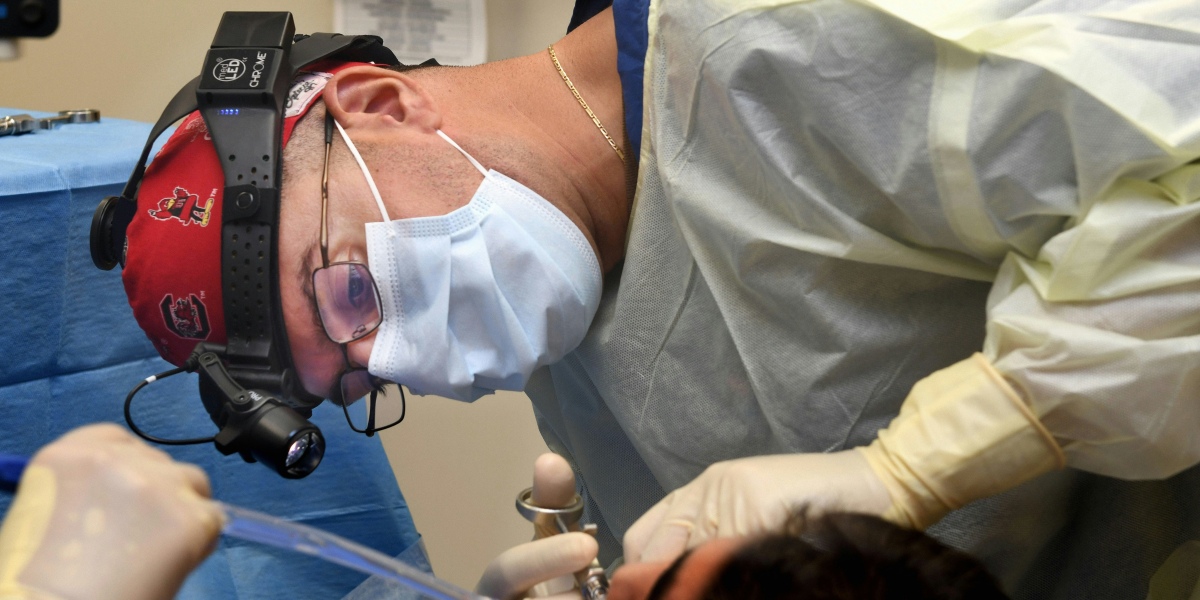In today’s fast-paced world, smart professionals make strategic choices not only in their careers but also in their healthcare. When it comes to oral health, especially surgical or complex procedures, a growing number of patients are opting for expert oral surgeons over general dentists.
This shift isn’t about prestige; it’s about precision, safety, and achieving optimal long-term outcomes. In this article, we explore why choosing a specialist like an oral surgeon can make a meaningful difference when it truly counts.
What’s the Difference Between a General Dentist and an Oral Surgeon?
At first glance, both general dentists and oral surgeons deal with teeth, but their roles and training are vastly different:
- General Dentists: Focus on routine care, cleanings, fillings, crowns, and minor extractions. They are essential for day-to-day dental health.
- Oral Surgeons: Complete four to six additional years of surgical residency beyond dental school, specializing in complex procedures like wisdom tooth removal, dental implants, bone grafting, and jaw reconstruction.
For more advanced issues, relying on a qualified oral surgeon in Paramus Park ensures you’re receiving care from someone deeply experienced in surgical anatomy and complications.
Why Professionals Are Opting for Oral Surgeons
Busy professionals value outcomes, efficiency, and peace of mind. Here’s why many are choosing oral surgeons over general dentists for advanced care:
1. Specialized Surgical Expertise
Oral surgeons are trained to perform delicate procedures with precision, including nerve preservation and advanced bone shaping. This level of skill significantly reduces the risk of complications, especially in high-stakes treatments like dental implants or jaw corrections.
2. Access to Advanced Technology
Oral surgeons invest in surgical-grade technology such as 3D imaging, digital planning tools, and minimally invasive instruments. This allows for more accurate diagnosis and safer procedures with faster recovery.
3. Comfort-Focused Sedation Options
Unlike most general dentists, oral surgeons offer various levels of sedation from IV sedation to general anesthesia, providing a pain-free and stress-free experience. This is ideal for professionals who want comfort and convenience without compromising on safety.
4. Efficient and Streamlined Care
Oral surgeons typically have dedicated teams and refined workflows for complex procedures. This means faster treatment timelines, fewer visits, and less disruption to your busy schedule.
5. Lower Risk, Better Outcomes
Complications such as nerve damage, sinus issues, or implant failure are less likely under an experienced surgeon’s care. Precision leads to success, and success leads to fewer long-term issues and re-treatments.
Comparing Outcomes: Oral Surgeon vs. General Dentist
When it comes to complex dental needs, the choice between a general dentist and an oral surgeon can significantly affect the outcome. Here’s how the two compare in key areas of expertise.
Wisdom Teeth Extraction
- General dentists may only handle simple extractions and often refer to complex cases.
- Oral surgeons perform impacted or high-risk removals with sedation and advanced imaging.
Dental Implants
- General dentists may place implants without bone grafting experience.
- Oral surgeons use 3D planning and advanced placement techniques for long-term success.
Bone Grafting
- Rarely performed by general dentists; may require outside referral.
- Common procedure for oral surgeons, often combined with implants.
TMJ or Jaw Surgery
- Not typically within a general dentist’s scope of practice.
- Oral surgeons diagnose and treat jaw dysfunctions with surgical options.
Sedation and Anesthesia
- Limited to local anesthesia or nitrous oxide.
- Oral surgeons offer IV sedation and general anesthesia for maximum comfort.
When Should You See an Oral Surgeon?
You should consider seeing a certified oral surgeon if you:
- Need wisdom teeth extracted, especially if they’re impacted
- Are planning to get dental implants
- Require a bone graft or sinus lift before implant placement
- Experience chronic jaw pain or bite issues
- Want a second opinion on a complex dental diagnosis
A consultation at Paramus Park Oral Surgery can help you understand your treatment options with clarity and confidence.
The Experience Matters
Expert oral surgeons not only bring skill to the table but also patient care tailored to those who expect excellence. The environment is often more private, appointments are longer and unrushed, and care is centered around comfort and communication.
For working professionals juggling tight schedules, this level of consideration can make all the difference.
Conclusion
Choosing the right provider for your oral health needs is an investment in your well-being, time, and peace of mind. While general dentists are indispensable for everyday care, oral surgeons bring the advanced expertise needed for complex procedures. That’s why more professionals are turning to specialists to ensure precision, safety, and lasting results.
Disclaimer: The information provided in this article is for general informational purposes only and should not be construed as medical advice. While oral surgeons are specialists with advanced training, all surgical procedures carry inherent risks, including complications, infections, and unexpected outcomes. It is important to consult with a qualified oral surgeon to discuss your individual circumstances, treatment options, and potential risks before proceeding with any procedure.
















